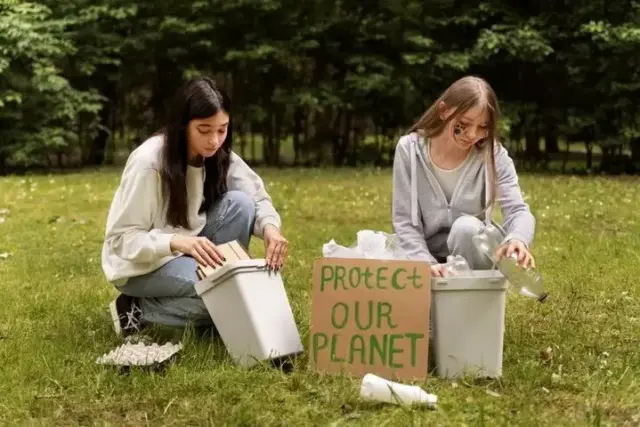Reducing waste and lowering your carbon footprint are essential steps toward living a more sustainable life. Simple, mindful changes in daily habits can make a significant impact. Here are some practical tips to guide your efforts toward a greener lifestyle.
Adopt the Three R’s: Reduce, Reuse, and Recycle
Start by focusing on reducing consumption. Choose quality over quantity when shopping, and prioritize items that are durable and long-lasting. When possible, opt for secondhand goods, such as clothing, furniture, and electronics, to give pre-loved items a new life. Additionally, recycle materials like paper, glass, and aluminum correctly to ensure they don’t end up in landfills.
Say No to Single-Use Items
Single-use plastics and disposables are significant contributors to waste. Invest in reusable alternatives such as water bottles, coffee mugs, shopping bags, and food containers. Keep these items handy to avoid the temptation of using disposable versions. Every time you use a reusable item, you’re helping reduce the demand for single-use products.
Embrace Composting
Organic waste, like food scraps and yard trimmings, can be composted instead of thrown in the trash. Composting not only reduces waste but also creates nutrient-rich soil for gardening. Whether you have a small balcony or a large backyard, there are composting solutions for every space. Start by collecting kitchen scraps like vegetable peels and coffee grounds, and watch how your waste transforms into something valuable.
Practice Energy Efficiency
Reducing your carbon footprint can be as simple as turning off lights when leaving a room or unplugging devices when they’re not in use. Switch to energy-efficient appliances and light bulbs, and consider hanging clothes to dry instead of using a dryer. Small adjustments to how you use energy can significantly reduce your environmental impact.
Choose Sustainable Transportation
Walking, biking, carpooling, or using public transport are great alternatives to driving alone. If you must drive, consider maintaining your vehicle properly to ensure it runs efficiently, or think about switching to a hybrid or electric vehicle. Incorporating these habits into your routine not only reduces carbon emissions but can also save you money on fuel.
Mindful Eating and Shopping
Be thoughtful about the food you buy. Choose local and seasonal produce to cut down on the carbon footprint associated with transportation. Reduce food waste by planning meals, storing food properly, and using leftovers creatively. Additionally, opt for minimally packaged goods and bring your own containers when shopping for bulk items.
Conserve Water
Using water wisely not only conserves a precious resource but also reduces energy used for water treatment and heating. Fix leaks promptly, install water-efficient fixtures, and collect rainwater for outdoor use. Simple changes, like turning off the tap while brushing your teeth, can make a big difference over time.
Inspire and Educate Others
Your actions can inspire those around you. Share your knowledge and practices with family, friends, and coworkers. Encourage others to join you in adopting eco-friendly habits. Together, collective efforts amplify the positive impact on the environment.
Incorporating these tips into your daily life not only reduces waste and lowers your carbon footprint but also fosters a sense of responsibility toward the planet. Small, consistent actions create meaningful change, paving the way for a healthier and more sustainable future.










































